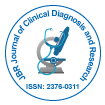Comparison of Salivary PH Changes with Tap Water and Mineral Water Rinse after 50% Sucrose Solution Rinse: A Cross-Over Trial
Received Date: Jul 16, 2017 / Accepted Date: Aug 23, 2017 / Published Date: Aug 29, 2017
Abstract
Aim: To compare the effect on salivary pH following mouth rinse using tap water and various brands of mineral water after rinsing with 50% sucrose solution.
Introduction: Oral hygiene is the primordial level of prevention of dental caries. Since mouth rinsing habit is a daily oral hygiene habit, modification with pH modifying agents can greatly help in the prevention of dental caries.
Methodology: A cross-over trial was done among 60 children in the age group of 3-6 years. The salivary pH was measured at 3 intervals at baseline, after rinsing with 50% sucrose solution and after rinsing with tap water. After 30 min the similar protocol is followed for measuring pH after rinsing with mineral water. Randomisation was followed in selecting the brand of mineral water to be used. The results obtained were compared with Wilcoxon Signed Ranks Test the salivary pH after tap water and mineral water rinse and with Kruskal-Wallis Test in between the three brands of mineral water.
Results: There was a significant difference in salivary pH after the tap water and mineral water rinse with a higher pH after mineral water rinse. However, there was no significant difference in between the three different brands of mineral water.
Conclusion: Rinsing mouth with a solution having higher alkaline pH leads to neutralization of acid production, thereby preventing the caries process.
Keywords: Demineralization; Mineral water; Mouth rinse; Salivary pH; Tap water
Citation: Panchal V, Gurunathan D (2017) Comparison of Salivary PH Changes with Tap Water and Mineral Water Rinse after 50% Sucrose Solution Rinse: A Cross-Over Trial. J Clin Diagn Res 5: 142.
Copyright: © 2017 Panchal V, et al. This is an open-access article distributed under the terms of the Creative Commons Attribution License, which permits unrestricted use, distribution, and reproduction in any medium, provided the original author and source are credited.
Share This Article
Recommended Journals
Open Access Journals
Article Usage
- Total views: 4985
- [From(publication date): 0-2018 - Feb 04, 2025]
- Breakdown by view type
- HTML page views: 4259
- PDF downloads: 726
